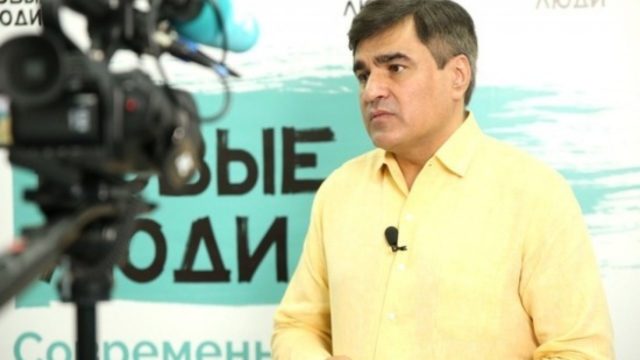
How New Are the ‘New People’ in Russia’s Parliament?
Publication: Eurasia Daily Monitor Volume: 18 Issue: 152
By:

One of the sensations of the September 17–19 elections in Russia—on the whole absolutely predictable—was the entry of the New People party into the State Duma (lower chamber of parliament). The faction received 5.32 percent of the vote and, accordingly, 13 deputy mandates. This is only a small share of the total number of Duma deputies, which is 450. The United Russia party, in comparison, retained its constitutional supermajority of 324, allowing it to pass all laws entirely on its own.
Nevertheless, for the first time since 2007, a fifth party entered the Duma, violating the “harmonious” combination of United Russia, Just Russia, the Communist Party and Vladimir Zhirinovsky’s Liberal Democratic Party, which have always voted the same on strategic issues, such as the annexation of Crimea. The emergence of New People in the Duma was the result of analytical calculations in President Vladimir Putin’s administration, which revealed a social demand for the appearance of new faces in parliament. That analysis suggested that if only the old parties with their aging leaders remained, the situation could result in a massive loss of all interest in the elections and an increase in protest moods among young, liberal-minded voters who have no parliamentary representation.
The political atmosphere in Russia is such that registering a new party can either be a trifle or absolutely impossible—it all depends on the attitude of this would-be party toward the Kremlin authorities. For example, Alexei Navalny has not been able register his party to take part in the parliamentary elections since 2012. Recently, the authorities declared his Anti-Corruption Fund an “extremist community” from the moment of its creation, which not only closes his electoral prospects, but also threatens to dramatically increase his prison term (Svoboda.org, September 28).
Unlike Navalny, the leader of New People, Alexei Nechayev, never called himself an oppositionist. On the contrary, he continues to take part in the leadership of the All-Russia People’s Front, an organization founded by Putin himself. Nechayev is the owner of the largest cosmetics company in Russia, Faberlic; and big business in Putinist Russia is necessarily affiliated with the state.
Investigative journalist Andrei Pertsev established that the New People party was created “under the roof” (political protection) of Putin’s friend, oligarch Yuri Kovalchuk (Meduza.io, September 24). For over a year, political strategist Yevgeny Minchenko has been working on creating the image of this party (Openmedia.io, December 3, 2020). Minchenko has managed to “pass between Scylla and Charybdis”: on one hand, he brought New People into the State Duma; and on the other hand, he gave them the smallest fraction there.
In addition to the State Duma, this party also won 34 seats in various regional parliaments. The politically popular Sardana Avksentieva, the former freely elected mayor of Yakutsk who defeated the United Russia candidate in 2018, became the main media face of New People. Avksentieva did not fit into the “power vertical,” and she resigned from the post of mayor in January 2021 “for health reasons.” Her replacement was a member of United Russia. To avoid the threat of mass protests, the authorities did not dare to apply severe repression against her. In the summer, when the election campaign to the State Duma began, Avksentieva quickly “recovered” and joined New People.
Surprisingly, the political program of this party advocates strongly for federalism and decentralization. Its platform declares, “Return money and powers to the regions. Now all taxes are distributed as follows: 75 percent are transferred to the federal budget, 25 percent are left to the regions. But it should be the other way around: 25 percent are transferred to the federal budget, 75 percent remain in the regions” (Newpeople.ru, accessed October 6). While the New People are, apparently, allowed such slogans, the Federative Party, which had put forward similar demands, was not permitted to register and ended up being banned from running. The discrepancy seems to be that the Federative Party was a project independent of the presidential administration (see EDM, September 13). Last year, Bashkir public figure Airat Dilmukhametov was sentenced to nine years in prison after calling for “new federalism” (Region.expert, August 24, 2020).
The Kremlin is well aware that many voters in various regions will enthusiastically vote for federalist slogans; therefore, it has created proxy standard-bearers for “federalism” to allow those voters to “blow off steam.” Eventually, however, such machinations could escape the Kremlin’s control. After all, the “Popular Fronts” in the Baltic republics in the late 1980s were officially Moscow-approved and stood “in support of Perestroika.” But the process went further than many expected. Kremlin officials may need to watch for similar signs when it comes to the New People party.



